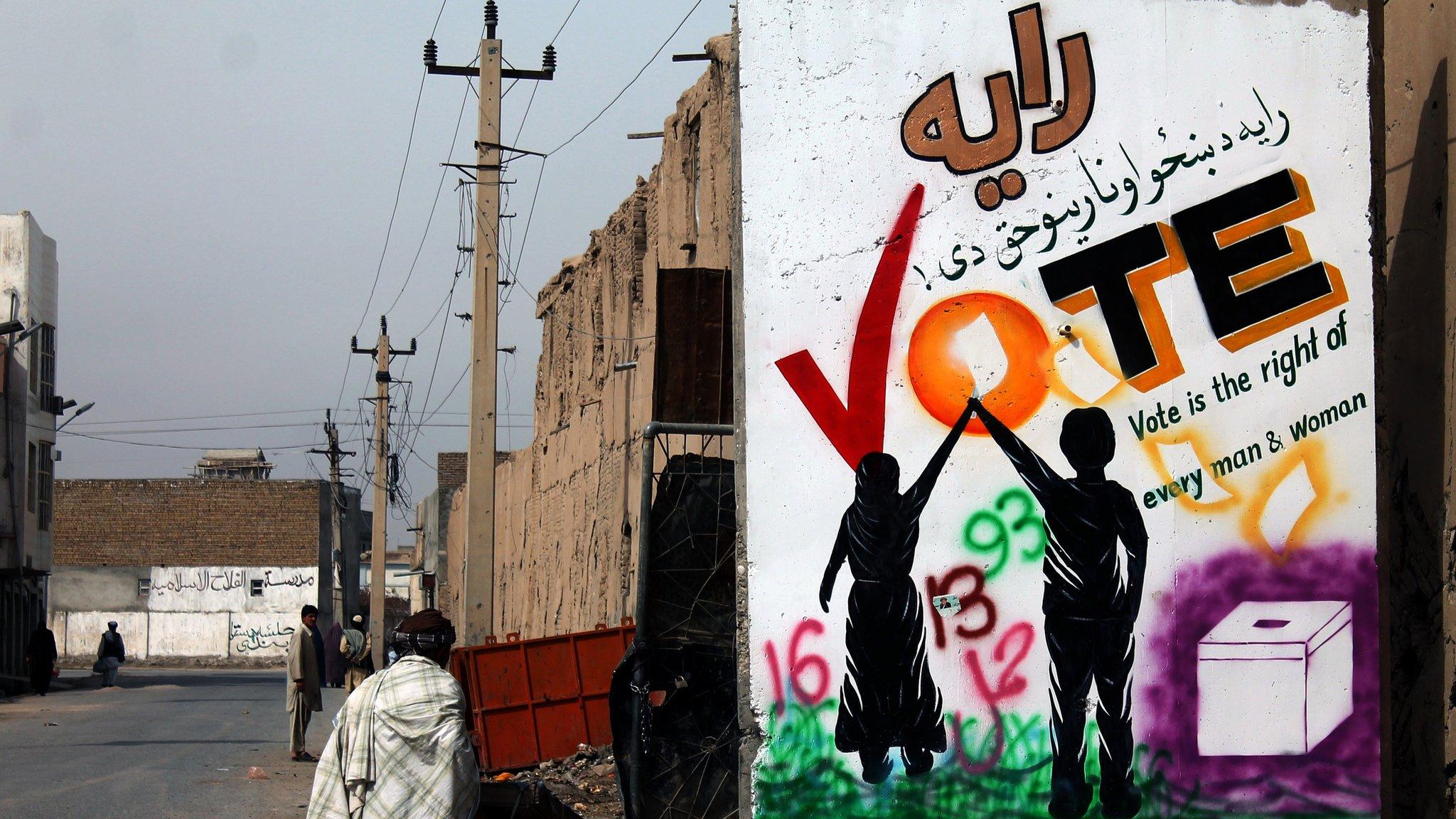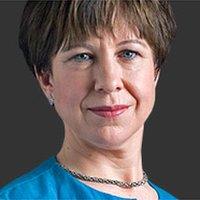Tumultuous birth of Afghanistan's power sharing accord
- Published
- comments
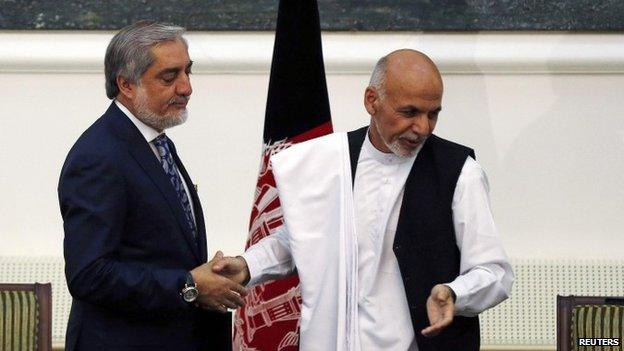
There are fears the deal between Abdullah Abdullah (L) and Ashraf Ghani may set a dangerous precedent
In the end, news of a long-awaited Afghan deal arrived in the wake of Scotland's impressive referendum, and just as World Peace Day began.
Afghanistan's power-sharing accord marks a defining moment in a tortuous process meant to bring more democracy, as well as peace, to a nation worn down by war.
But many Afghans remain apprehensive about an agreement clinched behind closed doors six months after millions braved Taliban threats and torrential rains to exercise their right to choose their new leader through the ballot box.
Nader Nadery speaks for many Afghans when he describes his "mixed feelings" about the deal reached between two bitter rivals, Abdullah Abdullah and Ashraf Ghani, and their dangerously duelling teams.
"I'm happy to see the deadlock end, and the long standing political crisis is - at least for now - over," remarks the prominent civil society activist, whose Free and Fair Election Foundation helped monitor the two rounds of presidential elections this year.
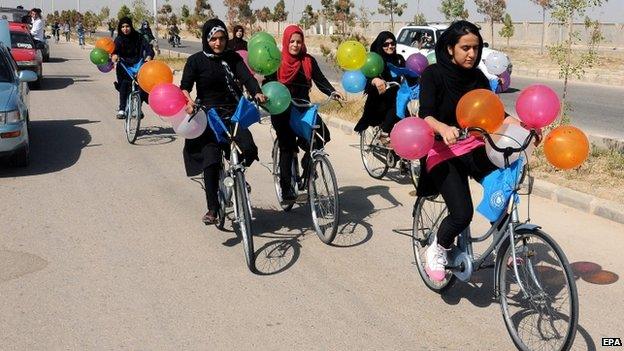
The long-awaited deal coincided with World "Peace Day" celebrations
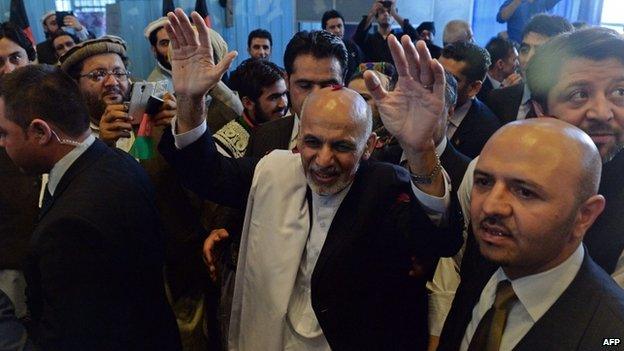
As president, Ashraf Ghani will have significant powers that are enshrined in the constitution
But, the risk, he tells me, is that it may "set a very wrong practise for future elections".
The political agreement was announced before the Independent Election Commission made public any details of its unprecedented audit, under UN supervision, of every vote.
Both sides had accused the other of carrying out extensive fraud. Dr Abdullah reportedly refused to agree to any deal if the discredited figures were released.
All that has been declared is that Ashraf Ghani will be Afghanistan's new president, which gives him the significant powers enshrined in the constitution.
Three months of behind-the-scenes wrangling also won Dr Abdullah considerable clout, including the right to appoint a chief executive officer, whose new role is much like a prime minister. He also has "parity" in senior security and economic appointments.
Both men will now be plunged into more protracted negotiations over positions and perks in the new administration - described as a "unity government".
One of my most abiding images from the second round of voting in June was the final press conference held by Dr Abdullah. He sat surrounded by a sea of advisors and aides swollen by the candidates and courtiers who had come over to his side.
"He has promised too much to too many," one of his advisors anxiously confided to me as a stream of politicians sped from the heavily fortified compound in sleek vehicles bristling with gun-toting bodyguards.
'Old divides and rivalries'
Both sides have promises to keep - to their teams, and to the Afghan people.
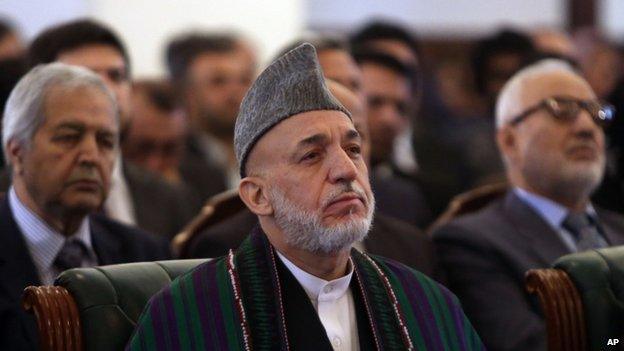
President Karzai's 13 years of power is now coming to an end
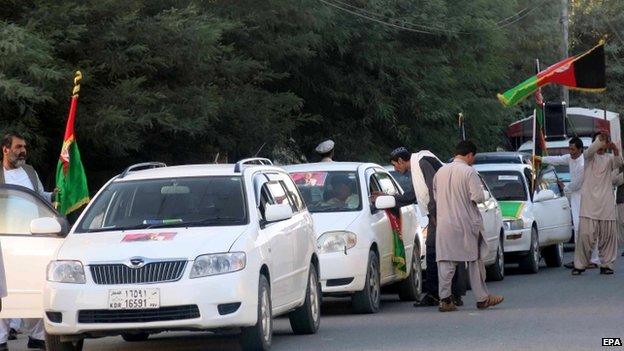
Mr Ghani's supporters have enthusiastically celebrated his rise to the presidency
"At best, they will now work as partners with a common goal." observes Kate Clark of the Kabul-based Afghanistan Analysts Network.
"At worst, all those tasks will re-open or keep open old divides and rivalries."
On Sunday, Abdullah Abdullah and Ashraf Ghani solemnly signed the historic documents at an elegant elongated table. Then, with a brief embrace, they quickly left a ceremony broadcast live on Afghan state television.
Dr Abdullah was, as always, impeccably dressed in a finely tailored blue suit and matching tie. Dr Ghani chose elegantly fashioned traditional attire for this historic occasion.
The moment was meant to send a powerful and positive symbol in a country where signs of certainty have been all too rare.
But wherever certainty is so exceptional, so is confidence.
"What's this deal worth?" a sceptical Afghan businessman asks me.
"They signed in Peshawar, Mecca, Central Asia..." his voice trails off as he lists all the agreements signed by Afghan rivals, one hand on the Islamic holy book, down through the decades. Promises were rarely kept.
"It's still the same people," he insists, adding "except for Ashraf Ghani" who spent many of those years of war studying or working in the United States.
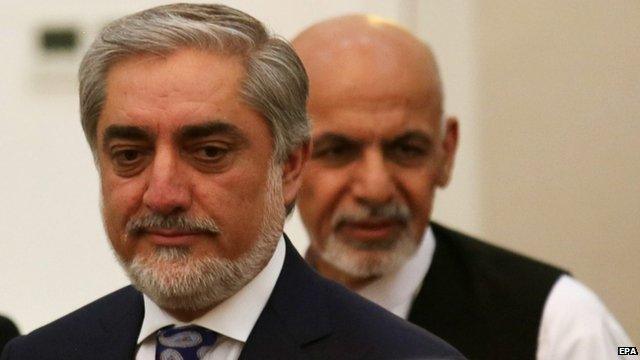
Both men will now be plunged into more negotiations over positions and perks in the new administration
Indeed, when cameras of Afghan state television focused in the other direction, they found the same mujahideen leaders from the war in the 1980s against Soviet rule, sitting in the front row - all except those who were assassinated or died of illness in their advanced age.
Even if many of the faces in the front are the same, Afghans searching for a slim seam of hope say that, in some ways at least, these men of guns had to change as they fought a different kind of battle for Afghan votes.
But through the long months of uncertainty after ballots were cast, there were ominous warnings of "parallel governments" and threats of violence.
It worsened an already febrile atmosphere as US-led Nato forces prepare to pull out, and Taliban forces continue to makes gains in strategic districts.
Sustained international pressure was crucial in keeping this tumultuous process on course including three telephone calls from President Obama to the two candidates, and dozens of calls and a few timely visits from US Secretary of State John Kerry.
And there was constant intervention on the ground by the UN Secretary General's Special Representative Jan Kubis, as well as President Karzai, among others.
"The uncertainty of the past months has taken a heavy toll on Afghanistan's security, economy and governance," said Mr Kubis in a statement. "For the sake of the country it is time to quickly implement the agreement on a government of national unity."
Millions of Afghans cast their ballots to vote not just for a new leader, but a better future. Now it's the turn of their leaders to prove that, in some way, those votes matter.
- Published21 September 2014
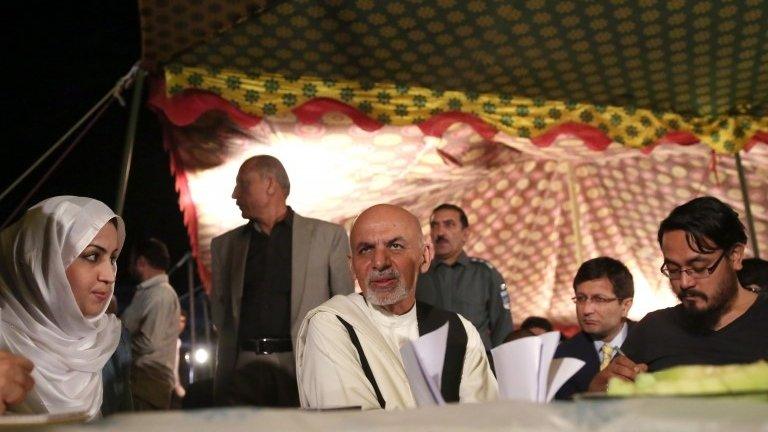
- Published26 September 2019
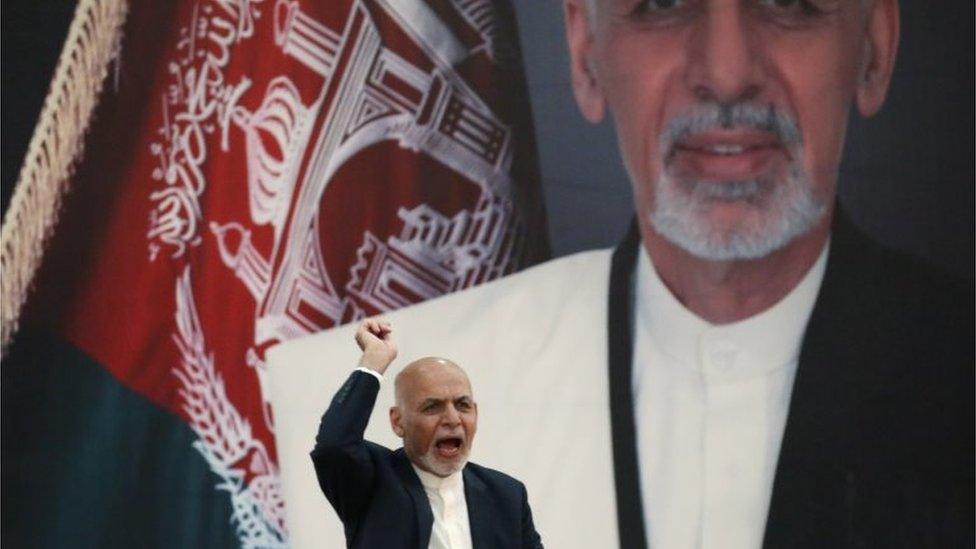
- Published27 September 2019
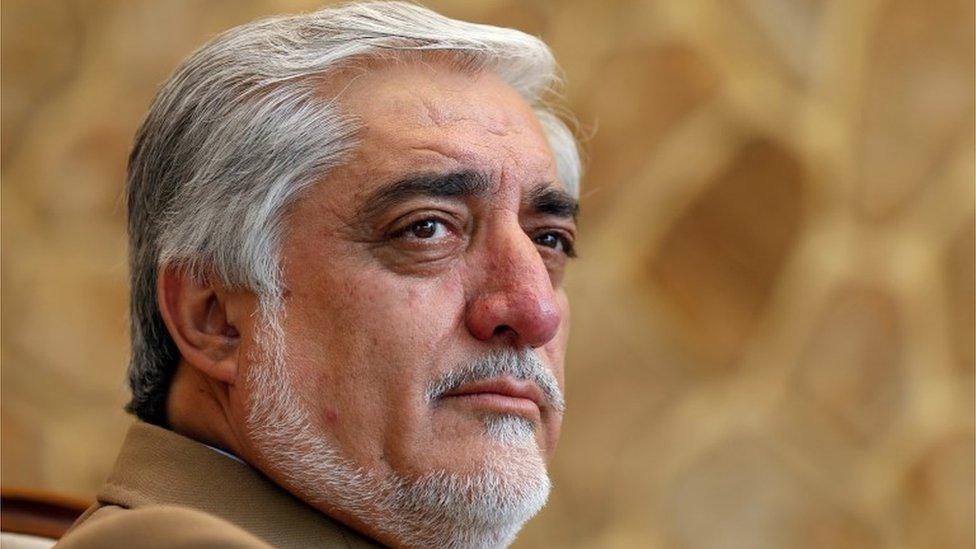
- Published25 August 2014
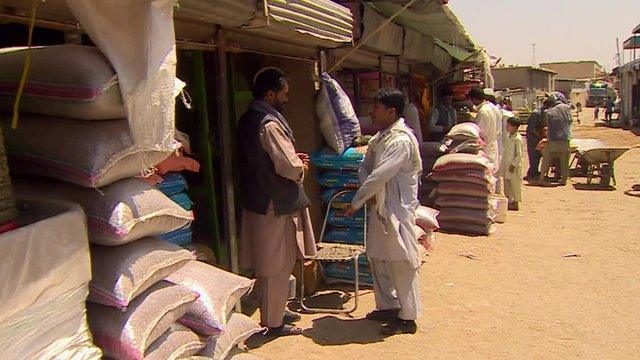
- Published7 July 2014
